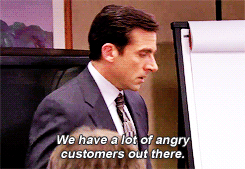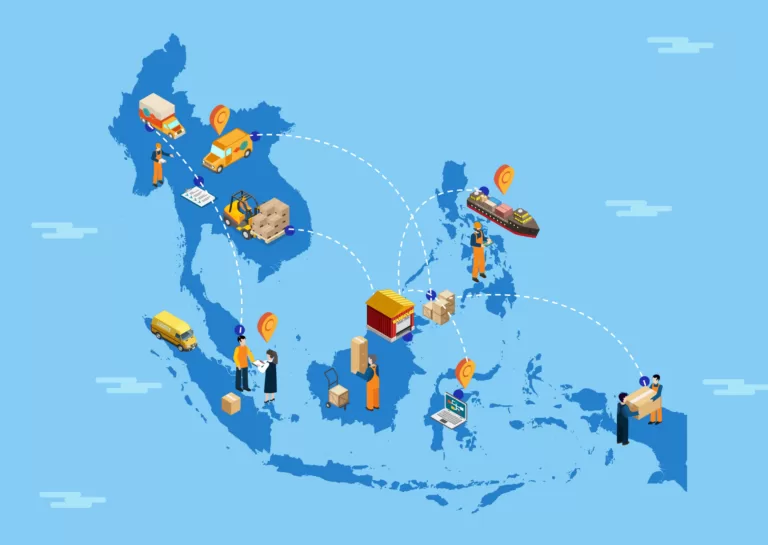3PL, Fleet Optimization
The trouble in paradise for 3PL and their fleet
Mar 24, 2019
4 mins read

What happens when your best friend turns into your biggest foe?

Shock, Anguish, and Sadness.
Just a few of the images that come to the mind.
That’s the situation that the 3PL companies are dealing with right now. Trucks, Ships, and Boxes; their most intimate homies have rebelled against them.

Believe it or not, managing fleet is one of the biggest challenges for 3PL companies. Cutting transportation costs is the topmost concern for 3PL providers according to this Capgemini study.
Rising consumer expectations due to the growth of the omnichannel and e-commerce industry have reduced the willingness to pay for quicker deliveries, with about 64 percent of consumers unwilling to pay anything extra for less than two-day shipping.
The evolution of the omnichannel and e-commerce industry has also added to the pressure of better last-mile deliveries. Ad-hoc online sales and sudden seasonal spikes in demand mean that shippers might struggle to process all the orders in a timely fashion. This can lead to an increase in overtime, a sudden hurry to hire temporary employees, and a lack of branded delivery supplies.
According to a recent study, 40% of firms have reported increased rates, 29% say assets aren’t available to move shipments when needed, and 30% have to outsource their work with larger third-party logistics to increase capacity. With 3PL companies not able to make the best use of their own fleet, the bond between vehicles and shipping companies is on shaky ground.
Reverse logistics is another pain point for today’s 3PL players. The process of moving goods from their final destination for handling exchanges, returns, refunds, or proper disposal is proving too much to handle for 3PL organizations and their fleets. Increasing return requests need extra man hours and additional shipping supplies which is acting as a major deterrent in the relationship between fleets and their 3PL counterparts.
The impact of an online retail customer’s return experience can be summed up as below.
85% of customers WILL NOT shop with you again if the return process is not convenient
95% of customers WILL shop with you again if the returns process is convenient.
— Harris Interactive study

So, now that we have listed the issues in the relationship, what can 3PL companies do to befriend their fleet again? Here are a few suggestions from our side:
1. Find a friendlier ‘route’

Having to move back and forth for deliveries can throw off the best of fleets. Additionally, they also cause inefficiency and additional costs in the supply chain. Having an automated route planner that generates optimal routes while considering multiple real-life constraints and distribution models can go a long way in patching up the relationship between the fleet and 3PL companies.
2. ‘Clubbing’ together:

As discussed above, reverse logistics has become a major apple of discord between organizations and fleet operations. A little ‘clubbing’ together of forward and reverse logistics based on properties such as preferred delivery time slots, priority orders, location preference, and order specifications (weight, size, etc.) can help in burying the hatchet between the old friends.
3. Mixing it up:

A pinch of owned vehicles, a dash of rented ones. Optimal fleet mix requires respecting business as well as local constraints such as traffic, route restrictions, etc. Solutions that give the best combination of captive and market vehicles based on costs will aid in providing amicability to the two parties.
4. Transparency in the relationship:

Having end-to-end visibility of on-ground resources can provide predictive alerts on delays, vehicle breakdowns, idle time etc. to improve both customer experience and efficiency in operations.
5. Planning for future:

Not just sudden demand spikes, but also the year to year increase in demand and business. Solutions that plan fleet for the current need and potential growth in the future and provide an estimate of vehicle requirements for better contract renegotiation can provide long-term stability to the relationship between the fleet and the company.
Apart from providing excellent relationship advice, Locus helps in optimizing your fleet by managing variability in your business. Our AI-based solutions along with our proprietary vehicle allocation engine ensure that you only use the optimal number of vehicles required with the minimum logistics costs. To know more, try Locus.

Related Tags:

Bahasa
Bagaimana Melakukan Optimalisasi Rute untuk Mengurangi Biaya dan Melakukan Peningkatan Terhadap Pengiriman Last-mile di Wilayah Asia Tenggara
Hidayat sedang berada di dalam perjalanan untuk melakukan pengiriman sebuah parsel ke pelanggan yang dimana ia telah ditugaskan. Alamat tersebut bertuliskan: “Selular shop, Mall Kelapa Gading 3, Jakarta Utara”. Hidayat melakukan pengecekan ulang terhadap alamatnya, dengan mencari nama dari jalan atau dengan nomor rumah. Tidak ditemukan. Hidayat kemudian menjadi bingung. Barang yang dikirimnya akan menjadi […]
Read more
Blog
Only The Paranoid Survive
The message from Andrew Grove, founder of Intel, has been my watchword for Locus. Locus was never meant to be a good company, not even a great one. Locus was intended to be perfect, which means that in this drive for perfection, we often forget to rejoice our achievements. Today as we secure 22M USD […]
Read moreMOST POPULAR
EDITOR’S PICKS
SUBSCRIBE TO OUR NEWSLETTER
Stay up to date with the latest marketing, sales, and service tips and news


The trouble in paradise for 3PL and their fleet